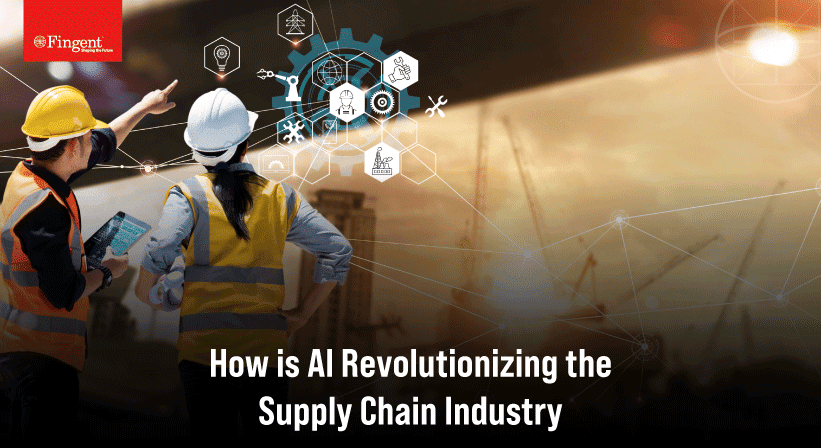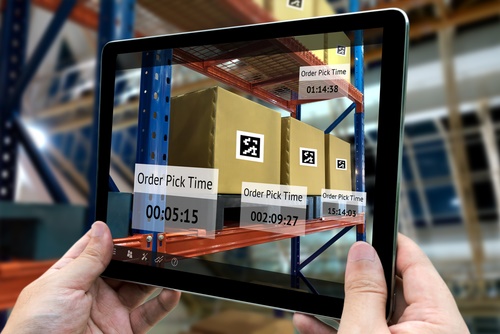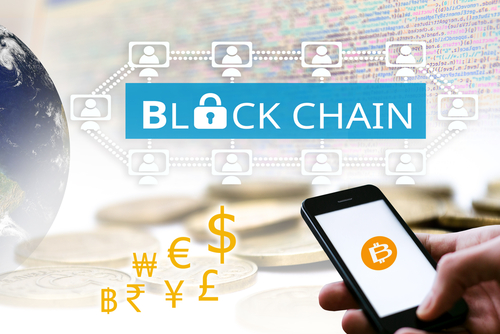Leveraging Blockchain Technology to Transform Supply Chain Industry
The transformative impact of blockchain remains much underestimated. While the concept is now associated with Bitcoins, the underlying technology could very well become the most important disruption since the arrival of Internet.
Blockchain in its purest essence is a distributed database, containing digital data. Users may access, inspect, or add to the data, but cannot change or delete it, making it tamper-proof. The original information remains as it is, leaving behind a trail, or a chain of transactions. Any single transaction would be a “block” in a never-ending chain, with the chain distributed across the internet, outside the control of anybody. Businesses leveraging block chains have an easier and safer mechanism to conduct transactions.
How Viable is Blockchain in the Supply Chain?
One area where blockchain technology is in the throes of making a big disruption is the supply chain of industries. In the existing system, the database is updated every time a movement or change takes place in the supply chain. With blockchain, every time a product changes hands, the transaction is documented, creating a permanent history of a product, from the point of origin to sale. In a traditional supply chain, each stakeholder maintains their respective records. With block chain, the records are distributed across the cyberspace, allowing for smart contracts. The distributed database runs on multiple servers, constantly checking the security and integrity of each transaction.
The application of blockchain technology in supply chain manifest in many ways:
- Real-time live recording of the quantity and transfer of assets, such as trailers, pallets, and containers
- Continuous tracking purchase orders, receipts, shipment related notifications, and other trade-related documents
- Assigning digital labels to physical goods, such as bar codes, serial numbers, RFID tags, and more. Blockchain allows connecting digital product information such as the source of origination details, batch numbers, factory and processing data, expiration dates, storage temperatures and shipping detail in a robust and inseparable way.
Improved Transparency
Blockchain brings about greater transparency in the supply chain. The log reveals the origins and touch points of each product, disseminating information on the manufacturing process, movements, and delivery, to all stakeholders. Such in-depth and finer details are not easily available now, and the potential applications of such transparency are earth-shattering:
- For perishable commodities, such as fish, blockchain records for each process, such as how and when the fish was caught or raised, whether it has been handled in a compliant manner, whether harmful formaldehyde was used in storing it, and more, increases consumer confidence and safety manifold. Walmart’s new Food Safety Collaboration Center in Beijing, where the company tied up with IBM and Tsinghua University to apply blockchain technology, to ensure food supply chain traceability and authenticity is a case in point.
- Blockchain logs make explicit the genuineness of a product, as in whether the product is really organic as claimed.
- An audit of blockchain logs make explicit whether the product was made using child labor, whether workers were paid fair wages, and whether there are any other ethically and/or legally reprehensible associations.
- Blockchain logs enhance safety. For instance, customers can track the components in their vehicle has come from an authorized manufacturer and has passed all recommended tests, increasing confidence, and reducing the risk of injury.
- In the case of defective products, the trial makes it easy to pinpoint the source of the problem and make effective amends. For instance, Blockchain production records enable tracing the place and time when a specific automobile airbags were made, allowing automakers to reduce their liability.
The trust and transparency that block chain infuses across the value chain become a new nexus for value exchange.
Security
One major impact of blockchain in the supply chain is improved security and accountability.
- The chain of logs ensures the authenticity of the product, and customers can verify the same automatically. With transactions tracked from the origin, a duplicate product or an unauthorized transaction is immediately flagged as counterfeit or theft.
- The permanent registry and verification assign tamper-proof individual identifiers to high-value products such as jewelry, making theft easily attributable. It also helps identify insurance fraud, which is a $60 billion industry in the USA.
- Blockchain serves as an escrow account, requiring all parties to confirm transactions. It eliminates the need for third parties, usually involved in the mix to ensure both parties honor their part of the contract. A shared, indelible ledger with codified rules also eliminates the need for audits.
The blockchain is on its way to enable more agile and secure value chains, with closer cooperation among stakeholders.
Process Improvements
The application of block chain in supply chain contributes greatly to process improvements.
- Blockchain logs make it very easy to detect errors or problems, and subject the supply chain movements to analytics to improve efficiency, on a dynamic basis. It also facilitates effective planning to improve processes.
- Blockchain delivers a decentralized architecture, which creates opportunities to innovate. For instance, intelligent block chain contracts query other nodes in the blockchain for the best pricing, delivery times, and other particulars. Smart shippers are already finding ways to leverage innovations to increase profits and strengthen relationships across the supply chain.
The application of blockchain technology enables tapping into rules-based intelligence, for executing business functions. Stakeholders may apply intelligent program code to embed conditions and other logic into contracts and other transactions, implemented automatically, with 100% accuracy. Manufacturers and other stakeholders can spare themselves of the copious amount of time, money, and other resources they presently spend to negotiate and communicate with other stakeholders.
The effectiveness of blockchain technology, however, depends not on blindly applying the technology per se, but developing solid and reliable apps that leverage the technology. The blockchain is only a facilitator, and it still requires cutting edge mobility solutions to power your supply chain to greater heights. Get in touch with a reliable partner for your business and mobility solutions requirements.
Stay up to date on what's new

Recommended Posts

27 Dec 2023 Logistics B2B
The Game-Changing Role of Custom Inventory Management in Supply Chain
Supply chain management is a complex web of processes that involve the seamless coordination of procurement, production, distribution, and more. Among these, inventory management stands out as a pivotal aspect……

25 Jul 2023 B2B
A Quick Guide To A Successful Digital Transformation Journey!
Today, technology seamlessly weaves its way into every aspect of our daily lives. That's precisely what digital transformation is all about - a process that enables businesses to harness the……

15 Jul 2023 B2B
Exploring the Power of AI In Supply Chain
Artificial Intelligence (AI) evolved from a concept of science fiction to a transformative force that permeates our daily lives. From autonomous vehicles to voice assistants, AI has already made significant……

03 Mar 2023 B2B
Digital Transformation Is Reshaping the Insurance Industry
How the insurance industry delivers service has evolved significantly in the last decade. Regardless of what form of insurance sales or policy management your organization is engaged in, you can……
Featured Blogs
Stay up to date on
what's new

























































